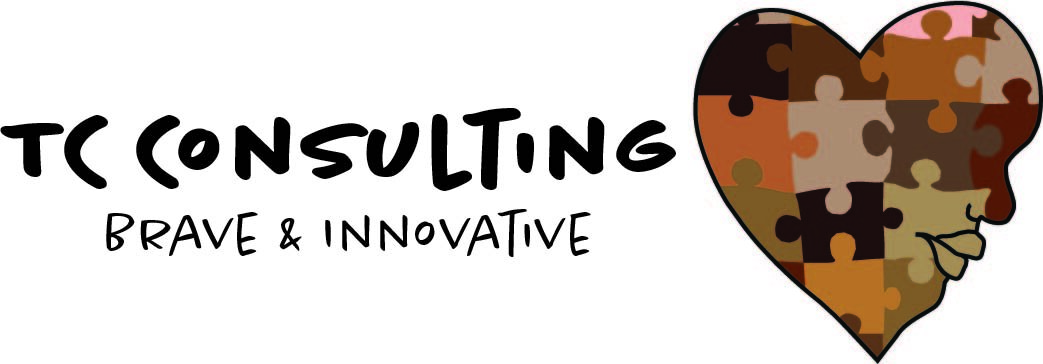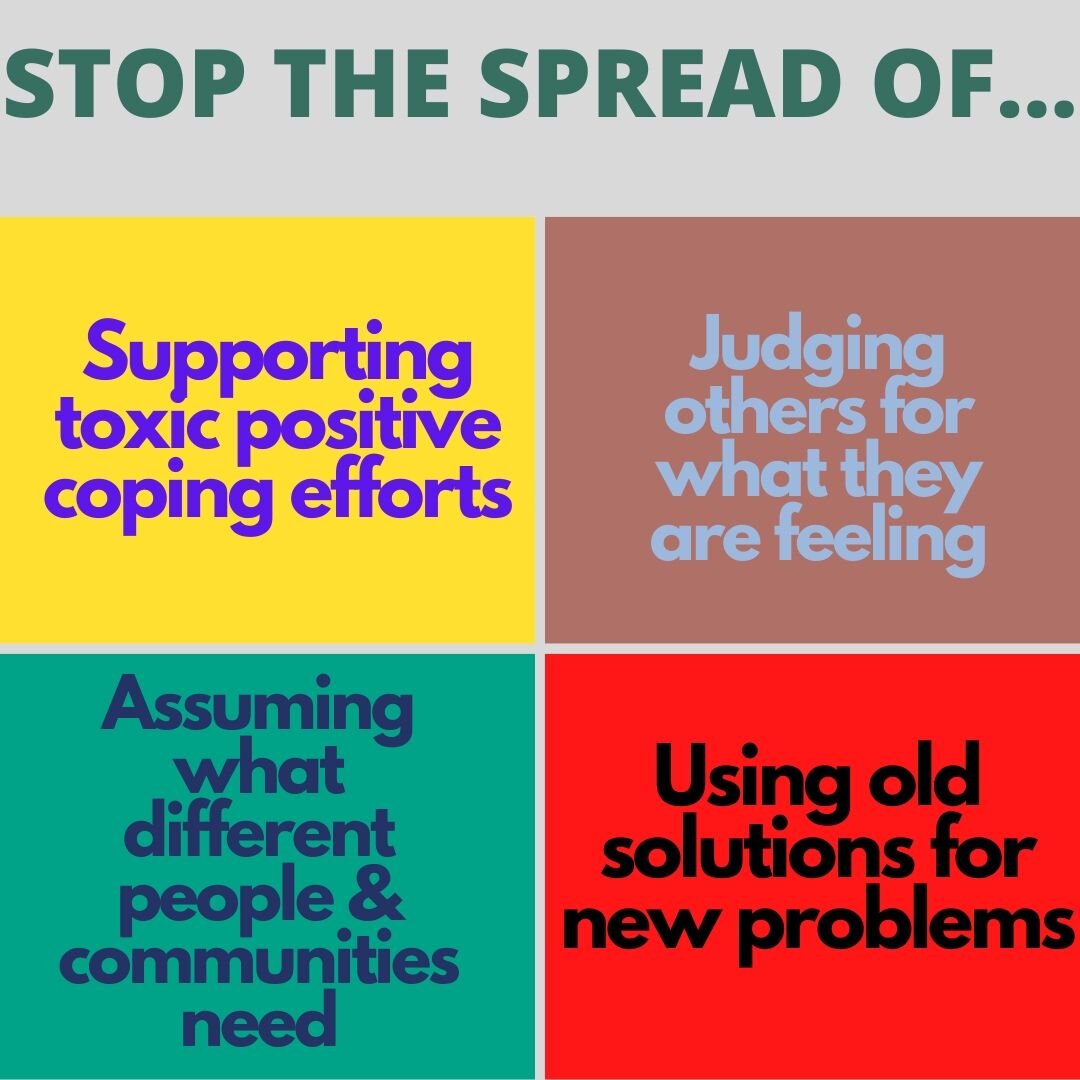The pandemic, COVID-19, is causing some people, communities, schools, and companies to rethink offered services, work-life balance, problem-solving efforts, community care, and more. National and international values and resources are being put to the test showcasing what should change, who has the power to do so, how people can use their skills and resources to help others, which individuals and cultures are continually oppressed, and more. A lot of the oppression and minimization of needs are not new during this time. However, the pandemic is amplifying various experiences of oppression.
Stop spreading…
Experiences
Profession
Standing six feet apart, nurses gathered in front of the White House on April 21 to read aloud the names of health-care workers who died of the coronavirus. (Zoeann Murphy/The Washington Post)
Black Doctor Armen Henderson who tests homeless for Coronavirus handcuffed by Miami police shares his experience (Democracy Now, 2020).
Farmworkers are risking their lives each day they go to work. Farmworkers are trying to be cautious during COVID-19 "driving separate cars instead of their usual carpooling and working with extra distance between them" (Marcus, 2020, para. 3). Some companies are taking precautions as well, including "reducing contact in facilities …, asking those who are sick or who have sick family members to stay home and extra cleaning in high-traffic areas" (Marcus, 2020, para. 18). Not all farms are being mindful of precautions. One farmworker shared, "even if we are sick, we have to work" (Marcus, 2020, para. 4).
To learn more about essential workers' stories, check out this article.
Minoritized Groups
As data shows that black Americans are disproportionately affected by COVID-19, communities are pointing to disparities in health care while trying to fight (AP, 2020).
With a dire need for blood nationwide, GLAAD is calling on the FDA to lift the ban for gay and bisexual men. They say a million people could benefit from blood donations (WKBW TV, 2020).
Chinese people and Asian communities are seen as a source of the Coronavirus based on stereotypes and xenophobia in America. According to Kandil (2020), Stop AAPI Hate, an “online reporting forum … has received more than 650 direct reports of discrimination against primarily Asian Americans” (para. 2). A few racist incidents include “being coughed at or spit on, being told to leave stores, Uber and Lyft drivers refusing to pick them up, verbal and online harassment, and physical assault … [shared from] Asian Pacific Policy and Planning Council and Chinese for Affirmative Action” (Kandil, 2020, para. 4). Foreigners in China are also experiencing xenophobia. Africans and Blacks in China are being “prohibited from leaving and eyed as a carrier of the disease, simply [for being African]” (Wang & Qin, 2020, para. 2).
Black and Brown communities have to face heightened negative perceptions during the pandemic where simple tasks, like food shopping, can instill more concern than before. Black people have to navigate concerns over wearing a mask in public and the racist thoughts tied them. The worry about others assuming Black and Brown shoppers are criminals is real. Aaron Thomas (2020), a Black man who writes for the Boston Globe stated, “a Black man cannot walk into a store with a bandanna covering the great part of my face if I also expect to walk out of that said store” (para. 2).
During the pandemic, immigration detention centers by ICE has continued with limited resources to protect immigrants. In an immigration detention center being six feet apart at all times is unachievable without locking immigrants in cells for most of the day (Yazic, 2020, para. 6). Safety materials such as “sanitizer, masks, and gloves are either reserved for employees or not used at all” (Yazic, 2020, para. 4). People are frequently being admitted, transferred, or deported without a full period of quarantine or testing (Yazic, 2020, paras. 4-5). Some detainees who expressed their concerns regarding pandemic safety in the immigration detention center was “pepper sprayed or otherwise punished” (Yazic, 2020, para. 4). Advocacy organizations for immigration are helping release detainees who are “nonviolent and medically high-risk” through lawsuits (Yazic, 2020, para. 6).
Another oppressive act regarding immigration in America is withholding stimulus checks from certain families and tax-paying immigrants. Hackman (2020) notes that “a family won’t be eligible for cash assistance if one is unauthorized, meaning … [no social security number or have an Individual Taxpayer Identification Number]” (para. 4). The impact of immigration in America continued when Secretary Betsy DeVos shared how the Coronavirus Emergency Grant Aid for higher education institutions could be utilized. The advice was to “limit the students eligible for the grant aid to those eligible for federal student financial aid, meaning U.S. citizens and some non-citizens” (Whistle, 2020, para. 3). So, students who participate in the Deferred Action for Childhood Arrivals program will not receive monetary help because they cannot receive financial aid (Whistle, 2020, para. 3).
The dis/ability community also faces discrimination during the pandemic. Limiting resources, such as ventilators, for people with disabilities, is a huge concern. The criteria that determine who receives a ventilator seems to intentionally exclude people with disabilities. Some of the deny criteria include “intellectual disabilities, measures of ‘baseline functional status’ (meaning how capable you were before getting sick) … [and] need for assistance with Activities of Daily Living” (Pulrang, 2020, para. 11 as cited in Ne’eman, 2020).
All experiences of oppression are not listed here. Let this bit of information on diverse experiences inspire you to learn more and determine how you can help (such as sign petitions, donate to advocacy organizations, write to political figures, spread the word of what is happening, and more).
Reflective Experience Questions
What diverse experiences of oppression have you noticed during the pandemic (locally, nationally, and worldwide)?
Which diverse experiences do you need to learn about regarding different needs and ways to help?
Efforts
Celebrities, brands, and non-profits are giving back to different communities and essential workers in various ways.
“Shakira donated ventilators as well as thousands of N95 masks for health care workers in Barranquilla, Colombia” (Billboard Staff, 2020).
Dolly Parton donated $1 million to Vanderbilt University for research regarding a cure for COVID-19 (Billboard Staff, 2020).
Blake Lively and Ryan Reynolds will be donating $1 million split between Food Banks Canada and Feeding America (Billboard Staff, 2020).
Adam Lambert “is auctioning off 15 of his stage outfits on eBay to benefit GLAAD, which is providing aid to the LGBTQ community during the coronavirus pandemic” (Billboard Staff, 2020). To learn about funding resources for the LGBTQ+ community, check out this website.
Lil Nas X and Megan Thee Stallion sent money to fans on Cash App (Billboard Staff, 2020).
DoorDash is “delivering groceries and prepared meals to households in need in partnerships with United Way Worldwide” (Rosmarin, 2020).
Dagne Dover is “donating 10% of … [customers] proceeds to the following nonprofits … CDC Foundation, Feeding America, and Save the Children” (Rosmarin, 2020).
MAC Cosmetics is “donating $10 million towards 250 organizations all over the world that are helping people at higher risk during the COVID-19 pandemic” (Rosmarin, 2020).
Bankrate is educating credit cardholders on how they can donate rewards to family and friends during COVID-19.
Oxfam America “is organizing efforts to increase the delivery of clean water and sanitary supplies to refugees and those living in higher-risk environments” (Giordano, 2020).
Feeding America “has a COVID-19 Response Fund that is helping ensure food banks across the country that can feed those in need right now” (Giordano, 2020).
Team Rubicon “has assembled teams across the country to help with logistics, packing and distributing food, and even supplementing hotline staffing” (Giordano, 2020).
Leaders are also providing different efforts to support essential workers, people, and communities.
Angela Merkel, the Chancellor of Germany, provided resources to test people at the beginning of the pandemic (Wittenberg-Cox, 2020). Tsi Ing-wen, the President of Taiwan, had a fast response plan for Taiwan. According to Wittenberg-Cox (2020) “back in January … she introduced 124 measures to block the spread without having to resort to the lockdowns that have become common elsewhere” (para. 3). Jacinda Ardern, the Prime Minister of New Zealand, “ imposed self-isolation on people entering New Zealand astonishingly early, when there were just 6 cases in the whole country” (Wittenberg-Cox, 2020, para. 4). Katrín Jakobsdóttir, the Prime Minister of Iceland, “is offering free coronavirus testing to all citizens” (Wittenberg-Cox, 2020, para. 5). Sanna Marin, the Prime Minister of Finland, is educating people on COVID-19 through social media influencers to capture the attention of the Finland community (Wittenberg-Cox, 2020, para. 6). Mette Frederiksen, the Prime Minister of Denmark, held a three-minute press conference where she answered children's questions to help navigate pandemic fear (Wittenberg-Cox, 2020, para. 7). Erna Solberg, the Prime Minister of Norway, held a press conference for children to explain what was happening, process the range of emotions one experiences for living in a crisis, and answer questions (Wittenberg-Cox, 2020, para. 7).
Bobi Wine, an Uganda politician, helped Africans and African-Americans facing discrimination in China. He partnered with “Neil Nelson, co-founder of media firm Atlanta BlackStar to help airlift Africans and African-Americans being subjected to "inhumane treatment" in China (Durosomo, 2020, para. 1).
Kendall Stephens and Elizabeth Coffey-Williams, co-facilitators of TransWay, spoke to Philadelphia Gay News about the new resources for the trans community to navigate the pandemic by The National Center for Trans Equality (Zipkin, 2020). Also, Zipkin (2020) also notes that Stephens and Coffey-Williams said encouraging words for trans folx to build a heartfelt supportive virtual community and what platforms are available to do so (Mazzoni Center’s group Sisterly L.O.V.E., Trans Masculine Advocacy Network, and the new Facebook group Trans Quarantine Space).
Some Democratic senators took a proactive step to advocate for the elderly and people with disabilities to have equitable medical treatment (Deese, 2020). Elizabeth Warren, Robert P. Casey, Jr., Margaret Wood Hassan, Kirsten Gillibrand, Chris Van Hollen, Christopher S. Murphy, Sherrod Brown, and Tim Kaine are a group of Democratic senators that wrote a letter to the United States Department of Health and Human Services “urging the administration to ensure that older and disabled adults receive medical treatment for the novel coronavirus” (Deese, 2020).
Michigan Governor Gretchen Whitmer is taking a stand to support Black and Brown communities. According to Karanth (2020), Whitmer “signed an executive order … [to create] an advisory task force meant to help address how the coronavirus pandemic has disproportionately infected and killed Black and brown Americans” (para. 1). The advisory task force will be organized by Lt. Gov. Garlin Gilchrist, different health experts, and coalition building community leaders (Karanth, 2020).
This is not an all-encompassing list of ways celebrities, brands, nonprofits, and different leaders are helping diverse communities during the pandemic. To learn about additional efforts, check out this article. I also encourage you to look further and discover the innovative ways people and organizations are striving to assist others.
Reflective Effort Questions
Which efforts stood out to you? Why?
What other initiatives are happening?
How are the efforts making a social impact on the communities they assist?
What can you do to help others?
Emotions
Being in quarantine has been a stressful experience for various reasons; 2020 graduates not being on-campus to celebrate, canceled proms and trips, schools and businesses closing, financial insecurity, increased health issues, discrimination, and more. In some ways, how we operate in the world has dynamically shifted, and emotions are ever-changing with what is happening.
I am grieving the ability to visit my family and hugs others because I live alone. My feelings are all over the place each day. I am finding different ways to connect with family and friends to feel supported during this time. Additionally, I sit and be with my feelings to recognize what I am experiencing. Then, doing a routine of waking up, shower, food, work, break, work, self-care, and community check-ins, more seems to help somewhat. I share this to encourage everyone that doing what one can is enough during the pandemic and take things day by day because enough is going on to overwhelm us.
“We’re feeling a number of different griefs. We feel the world has changed, and it has. We know this is temporary, but it doesn’t feel that way, and we realize things will be different. ”
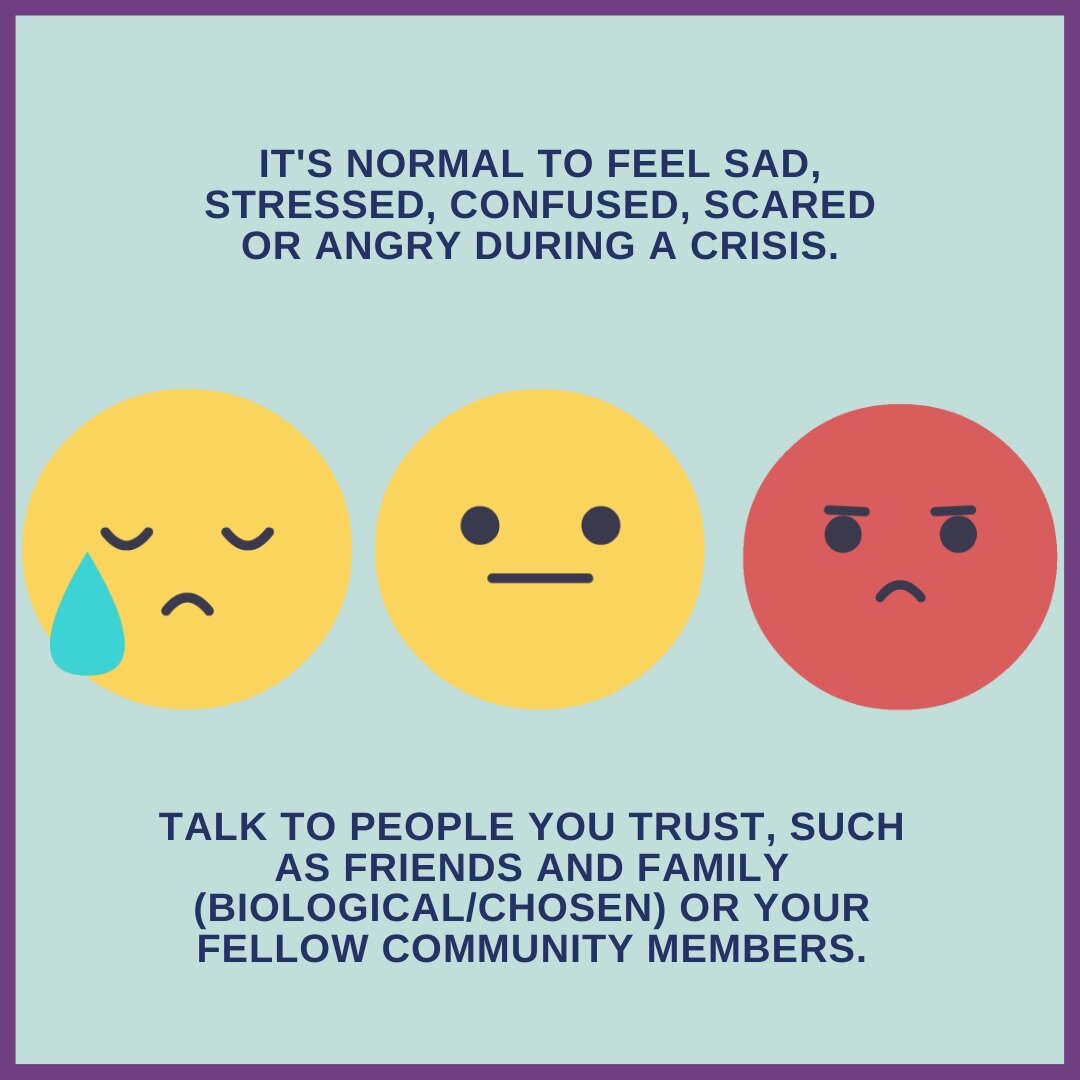
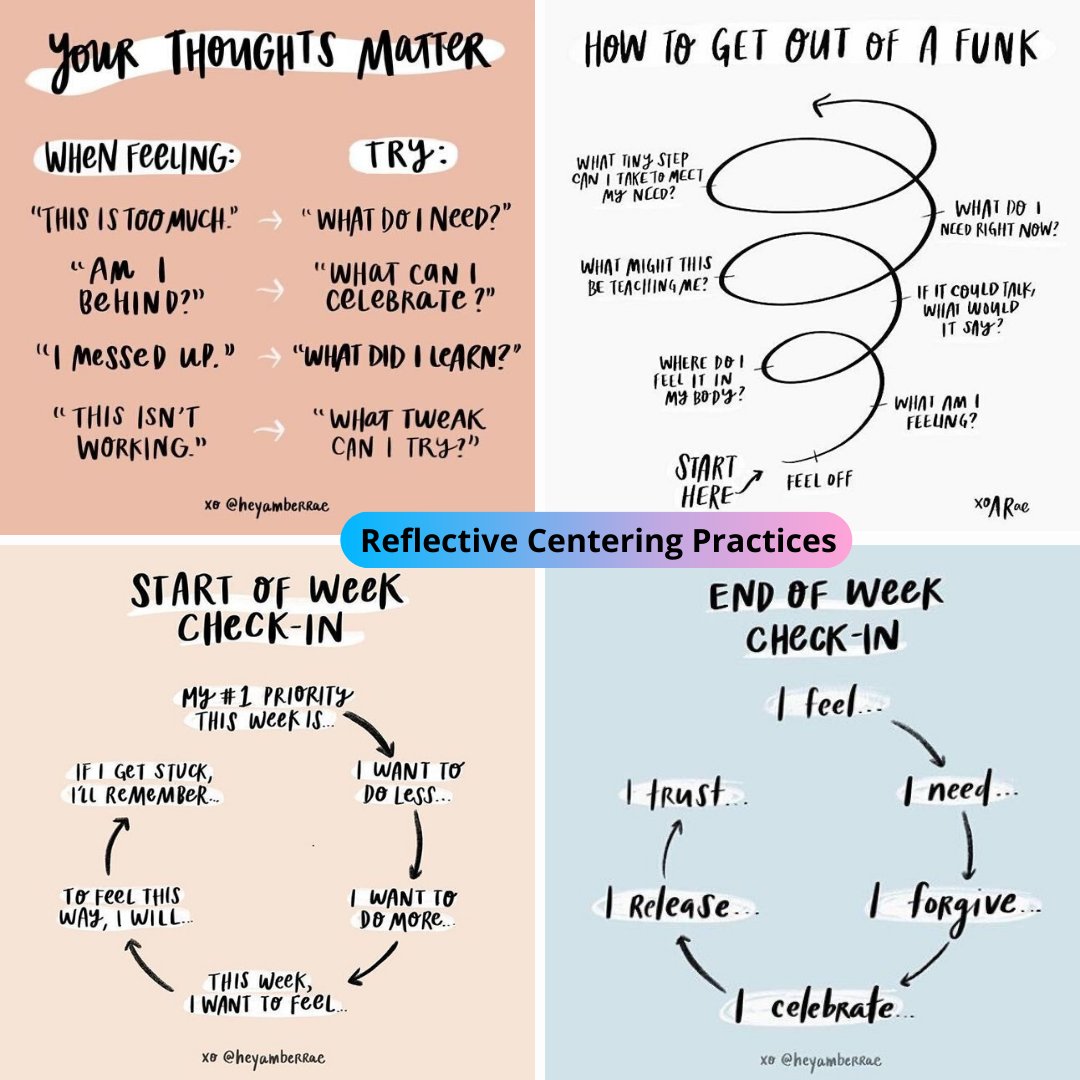
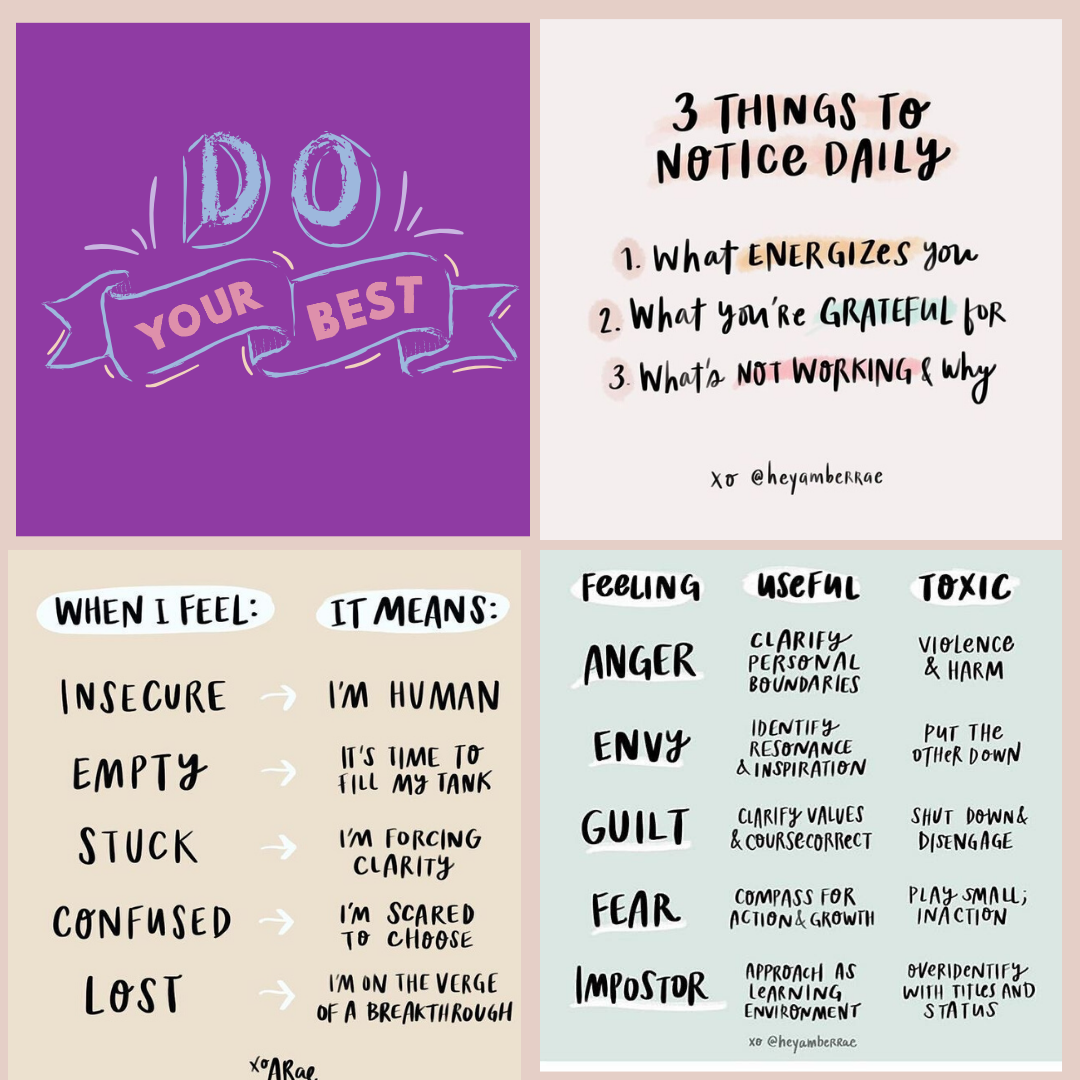

Here are a few resources to help work through the range of emotions during the pandemic:
https://health.uark.edu/coronavirus/caps-covid-19-resources-anxiety-workbook.pdf
https://www.depauw.edu/files/resources/coronavirus-anxiety-workbook.pdf
https://onbeing.org/starting-points/a-care-package-for-uncertain-times/
https://www.indigenousclimateaction.com/post/covid19-resources-for-indigenous-peoples
https://adaa.org/learn-from-us/from-the-experts/blog-posts/consumer/coping-covid-19-community
Allow yourself and others to process what they are feeling and experiencing at their own pace. Openness is needed when coping during a crisis. It's okay to ebb and flow with moments of pausing (to be or reflect) and trying different things (to care for your heart, your mind, and your soul, and others during the pandemic).
Reflective Emotion Questions
How are you doing with managing your emotions during the pandemic?
How can you practice mental and emotional mindfulness for yourself and others?
What could you do for self-care and community-care to sustain yourself and others?

